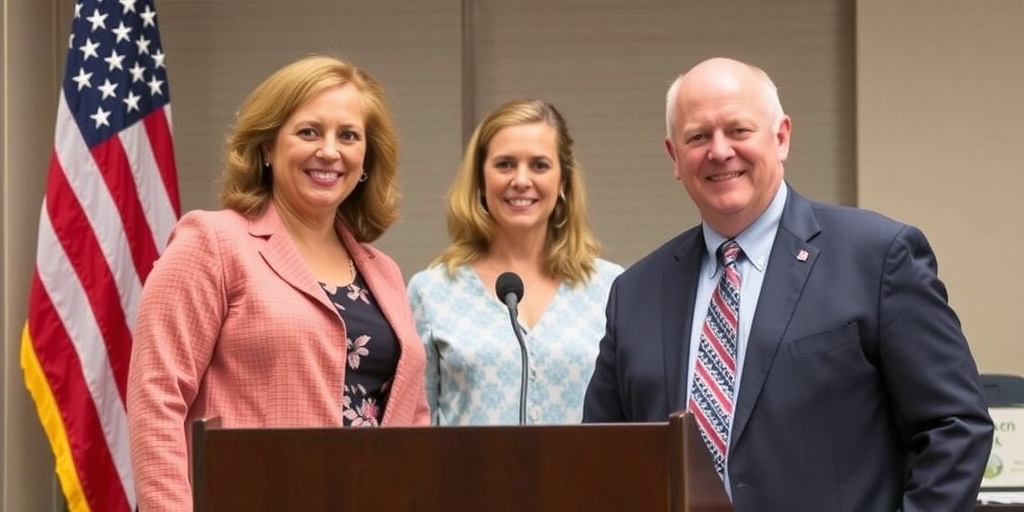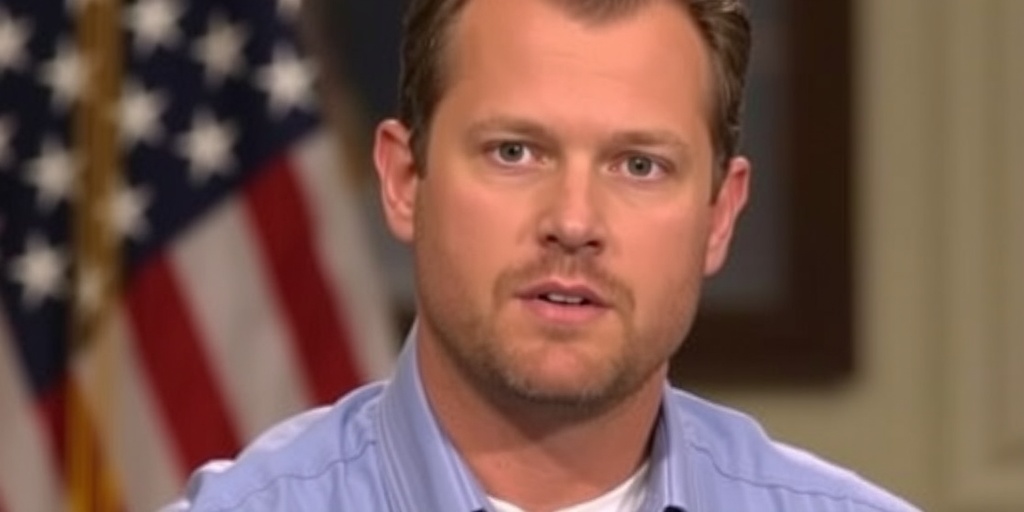Now Reading: GOP Medicaid Cuts May Lead to Significant State Shortfalls
-
01
GOP Medicaid Cuts May Lead to Significant State Shortfalls
GOP Medicaid Cuts May Lead to Significant State Shortfalls

Republicans Propose Medicaid Cuts to Fund Trump’s Tax Cuts, Impacting Millions
In a significant move, House Republicans are exploring ways to finance President Trump’s tax cuts by proposing cuts to the federal government’s Medicaid spending. This plan includes measures that could dismantle the Affordable Care Act’s expansion of the program, which has provided health coverage to millions of Americans since its inception in 2014.
The proposed cuts to Medicaid are a central feature of a budget bill that the House is set to vote on soon. Reductions in Medicaid spending could potentially leave millions without health coverage unless states are willing to allocate additional funds to bridge the gap. Republicans are considering revising the federal government’s obligation to cover 90% of the costs associated with states that have expanded Medicaid. Such a change could yield approximately $560 billion in savings over the next decade. This funding would be redirected towards extending Trump’s 2017 tax cuts, which are due to expire at the end of 2025. However, extending these tax cuts is estimated to cost about $4.5 trillion, prompting the need for further cuts beyond Medicaid from a range of government programs.
If the federal government reduces its financial commitment to Medicaid expansion, states will face a tough choice: either increase their spending to maintain coverage for millions, scale back benefits, or seek cuts from other major government programs. Currently, over 70 million individuals rely on Medicaid, making it the largest health insurance program in the United States. Since the expansion, more than 21 million adults have gained access to healthcare who were previously ineligible.
One such beneficiary of Medicaid expansion is Jeannie Brown, a 60-year-old part-time bus driver from Belgrade, Montana. For years, Ms. Brown struggled to obtain health insurance and went without necessary medical care. After Montana accepted Medicaid expansion in 2015, she was able to receive essential treatments for various health issues. “Without the preventative care I needed, I’d be in a much worse place physically. I’d probably be disabled,” she stated.
Supporters of cuts to Medicaid argue that the current system leads to excessive federal spending, disproportionately benefiting demographics that were not intended to be covered under the original Medicaid guidelines. Critics like Michael Cannon, director of health policy studies at the Cato Institute, contend that this creates incentives to prioritize able-bodied adults over more vulnerable populations who traditionally require assistance.
Additionally, claims of unexpected surges in Medicaid spending have been raised, particularly following the care delays experienced during the coronavirus pandemic. In response to these rising costs, some states have proposed significant budget increases for their Medicaid programs. Pennsylvania’s Governor Josh Shapiro, for instance, recently suggested a $2.5 billion increase for his state’s Medicaid program.
The repercussions of changing Medicaid funding could substantially impact both the healthcare availability for low-income Americans and the financial stability of healthcare providers. “This change represents a massive transfer of the financial responsibility from the federal government to the states,” warned Daniel Tsai, a former Medicaid overseer under President Biden. Tsai predicts that states will grapple with severe budget deficits, forcing them to choose between maintaining health coverage and protecting other programs.
Interestingly, Medicaid expansion has garnered bipartisan support across the nation, with a significant number of Republican-led states opting to expand the program due to its popularity among voters. Today, Medicaid accounts for nearly half of all births and over half of spending on long-term care in the U.S. A recent survey indicated that more than 70% of Americans want Medicaid to remain unchanged, reflecting its integral role within the healthcare framework.
Despite this broad support, President Trump has acknowledged the potential political fallout from cuts to Medicaid. He recently expressed his intention not to touch the program, highlighting the complexities and sensitivities surrounding its future.
Senator Josh Hawley of Missouri underscored the risks associated with the proposed cuts, stating that he has filed an amendment to prevent any reductions to Medicaid funding. His state’s decision to expand Medicaid has resulted in over 300,000 low-income residents gaining coverage.
As Congress deliberates the future of Medicaid funding, the consequences of these decisions could resonate far beyond individual states. Democratic legislators in Virginia are working to eliminate provisions that could reverse Medicaid expansion if federal funding is decreased, indicating a growing urgency to safeguard healthcare access amid uncertain fiscal policies.
In summary, House Republicans’ proposal to trim Medicaid spending could have profound implications for millions of Americans relying on this critical program. As negotiations advance, the balance between fiscal responsibility and ensuring healthcare access will remain a pivotal issue for lawmakers in the coming months.
Stay Informed With the Latest & Most Important News
Previous Post
Next Post
-
 01New technology breakthrough has everyone talking right now
01New technology breakthrough has everyone talking right now -
 02Unbelievable life hack everyone needs to try today
02Unbelievable life hack everyone needs to try today -
 03Fascinating discovery found buried deep beneath the ocean
03Fascinating discovery found buried deep beneath the ocean -
 04Man invents genius device that solves everyday problems
04Man invents genius device that solves everyday problems -
 05Shocking discovery that changes what we know forever
05Shocking discovery that changes what we know forever -
 06Internet goes wild over celebrity’s unexpected fashion choice
06Internet goes wild over celebrity’s unexpected fashion choice -
 07Rare animal sighting stuns scientists and wildlife lovers
07Rare animal sighting stuns scientists and wildlife lovers





















